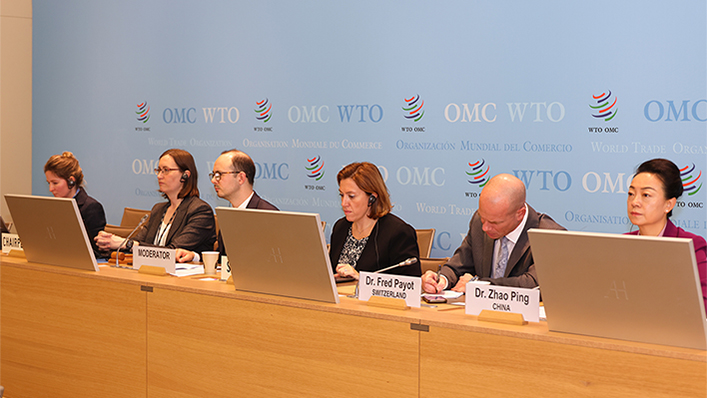
The moderator of the session, Mr Iain Fifer of the United Kingdom, emphasized the critical role of trade data in analyzing and enhancing the resilience of supply chains. He noted the challenges in gathering reliable, timely and relevant data, and underlined how such information can inform decision-making.
Thailand highlighted logistical challenges related to train freight routes from Thailand to Europe. While rail transport is faster than ocean freight and cheaper than air freight, it faces significant obstacles such as customs clearance issues at multiple borders, a lack of harmonized standards, and higher costs compared to sea freight. Additionally, it stressed how limitations in rail infrastructure add complexity.
China emphasized the importance of multilateral and bilateral trade frameworks, such as those supported by the WTO, in ensuring smooth supply chain operations. It underscored technological advances, particularly in big data and green energy, as key influencers of the development of global supply chains. China also announced the upcoming release of its Global Supply Chain Connectivity Index at the second China International Supply Chain Expo in November 2024. The document will provide a quantitative assessment of the resilience and stability of global supply chains.
India focused on the three fundamental pillars of supply chains — production, logistics and markets. It also underlined the importance of digital infrastructure in bolstering supply chain resilience. Additionally, India discussed initiatives such as the Unified Logistics Interface Platform and the PM Gati Shakti National Master Plan, which utilize geospatial data to enhance infrastructure connectivity and logistics efficiency.
The United States introduced its newly established Supply Chain Center within the Department of Commerce, designed to enhance supply chain resilience. The unit’s “Scale” tool assesses risks across sectors of the US economy by evaluating more than 40 indicators of criticality, vulnerability and resiliency in supply chains. The tool provides an in-depth view of current risks to better inform policy decisions, the United States underlined.
Switzerland presented an initiative led by the Organisation for Economic Cooperation and Development (OECD) aimed at improving the transparency and resilience of medical supply chains. The initiative was prompted by the supply shortages experienced during the COVID-19 pandemic. Switzerland’s project involves a monitoring mechanism designed to increase visibility in global medical supply chains and address future disruptions through international cooperation and the use of advanced technologies such as artificial intelligence.
In his conclusion, the moderator emphasized the importance of data design and collection in creating a comprehensive understanding of various supply chains. He stressed that data sharing and collaboration were central themes of the discussion, noting that swift and accurate exchange of information between stakeholders and governments is essential. Additionally, he acknowledged the significant analytical work required after data collection and pointed out that once data analysis is completed, it must be effectively utilized to guide policymaking. The session also featured examples of ongoing policy initiatives shaped by data-driven projects.
The interim Chair of the Market Access Committee, Ms Nicola Waterfield of Canada, expressed appreciation for the presentations and highlighted the importance of the discussions. She also announced that the Committee’s next formal meeting is scheduled for 19-20 November 2024.
Share
Reach us to explore global export and import deals